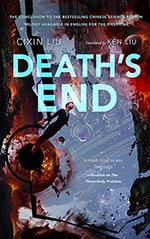
![]() Bormgans
Bormgans
10/6/2016
![]()
Cultural differences exist. In the excellent article Wheat People vs. Rice People, T.M. Luhrmann discusses, among other things, insights from psychologist Thomas Talhelm, published in Science in 2014. Talhelm makes a convincing case for the fact that the difference between the individualism of the West and the more communal societies of the East can be traced back to their agricultural history. Rice needs a team effort to grow and harvest: rice fields "require complex irrigation systems that have to be built and drained each year." Irrigation cannot be built and maintained by individual farmers, it needs a cooperating village. Wheat on the other hand can be grown much more easily: it "needs only rainfall, not irrigation. To plant and harvest it takes half as much work as rice does, and substantially less coordination and cooperation." It is hardly surprising that material circumstances shape cultures, but this particular link was eye-opening to me.
With all that in mind, it is also no surprise that Death's End, the final volume in the Three Body trilogy, again shows humanity acting as one character. This is quite explicit: Cixin Liu inserts the image of humans acting like an ant colony a few times in the story's 602 pages. It is not that Liu doesn't recognize difference, it's just that he focusses more on the end result of the whole.
(...)
Please read the full review on Weighing A Pig
https://schicksalgemeinschaft.wordpress.com/2016/10/06/deaths-end-cixin-liu-2010-transl-2016/